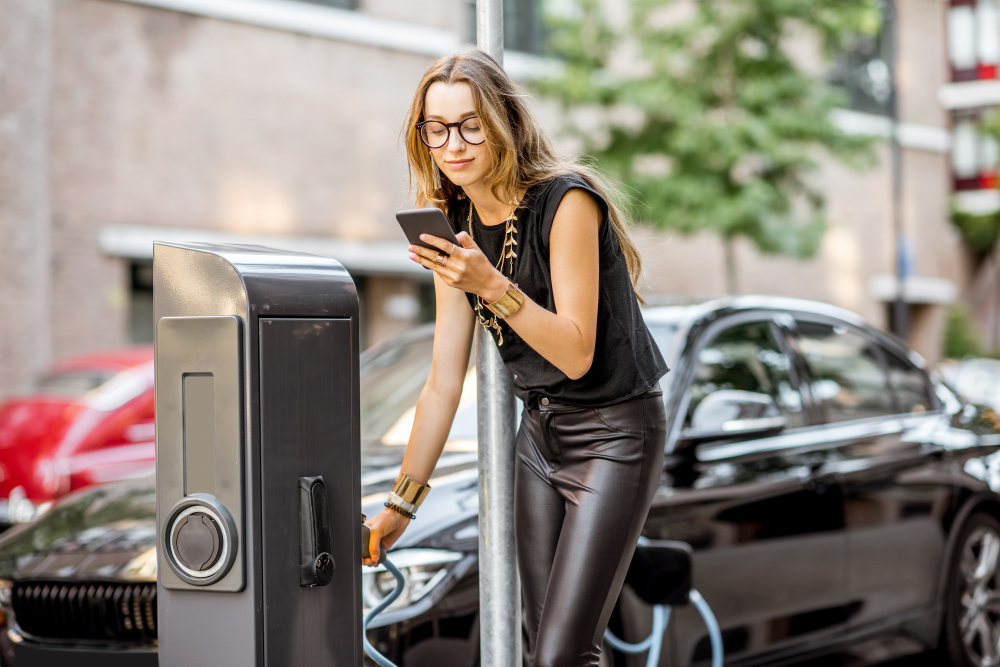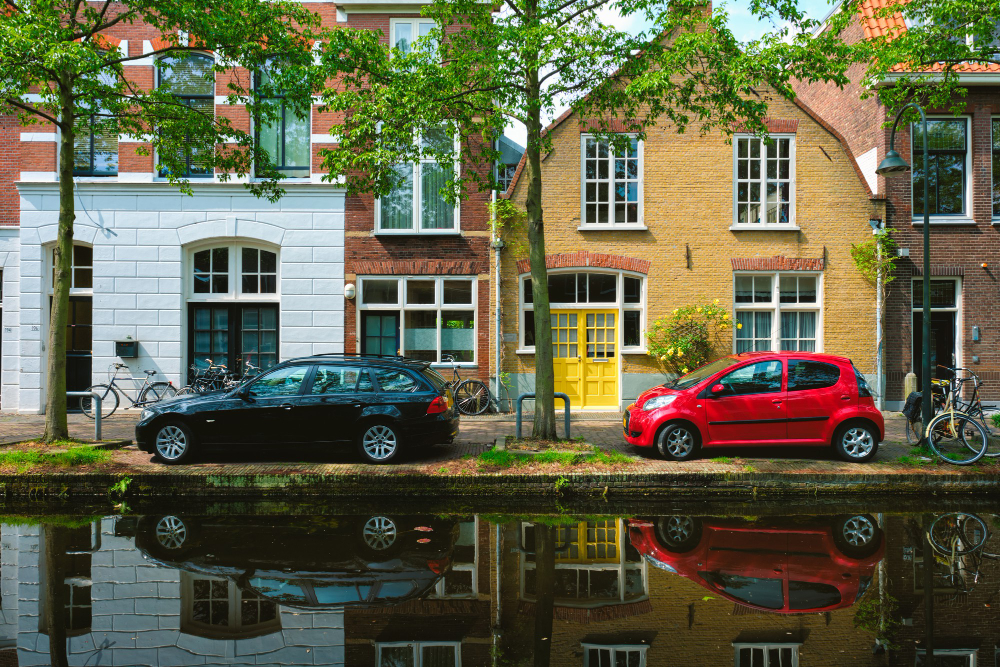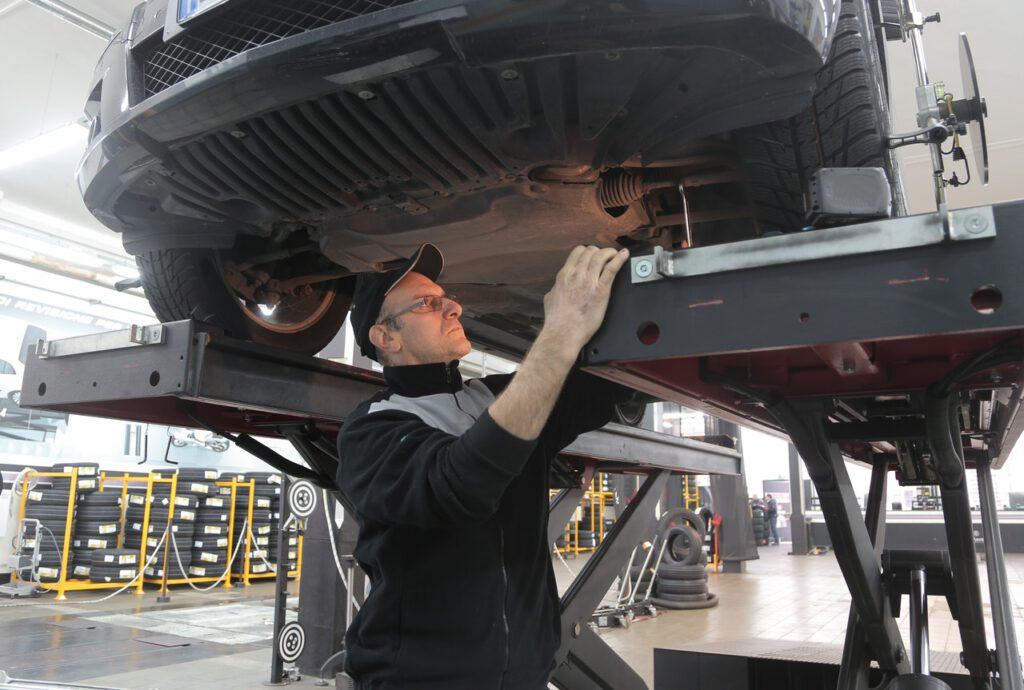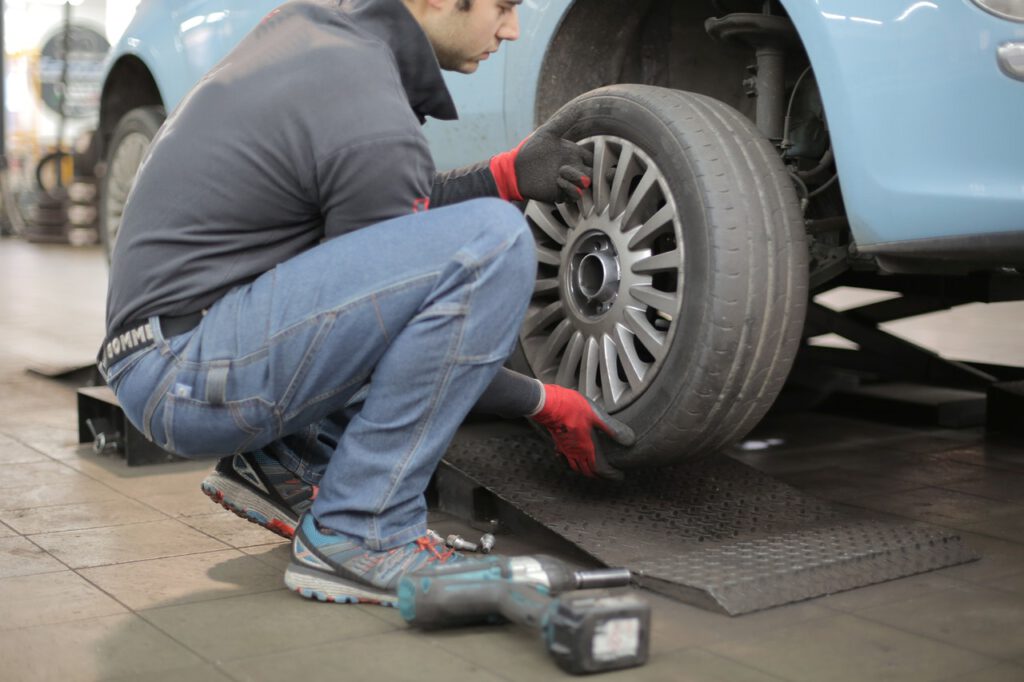Buying and driving a second-hand car in the Netherlands comes with a few advantages. They’re usually cheaper to buy, more sustainable, and you might find some reduced costs elsewhere.
But like the rest of the Netherlands, getting a car (whether it’s new, second-hand, electric, hybrid, or fuel), isn’t always cheap.
If you’re looking for something casual to get around or if you’re just strapped for cash, a €60,000 Tesla might be a biiiit too much. Most Dutchies buy second-hand cars, so it may be in the cards to purchase a second-hand car yourself.
So what are the costs you need to know when buying and driving a second-hand car in the Netherlands?
Initial purchase costs of your second-hand car in the Netherlands
An obvious cost but the most prominent one. The initial purchase cost is likely to be the biggest cost when buying a second-hand car in the Netherlands.
When buying a second-hand car, the price is determined by the characteristics of the car, including the type of vehicle (internal combustion engine, hybrid, electric), the size of the vehicle, how old it is, the mileage, the battery usage — the list goes on.
READ MORE | Buying a car in the Netherlands: 6 things to know
Second-hand cars in the Netherlands may sell for as low as €5,000 or as high as €50,000. And this price all depends on the above factors. Inflation also plays a role in determining the price tag, second-hand cars recently have gone up in price.
Financing your second-hand car
If you’re planning on buying and driving a car in the Netherlands but you’re unsure of how much everything is going to cost, there are a few financial aid options available to expats:
- Bank loan: Some banks are willing to loan you money to buy and even help maintain a second-hand car in the Netherlands.
- Car dealerships: Some car dealerships make adjustments or deals in their pricing to make it easier for customers to buy their cars.
- Leasing a car: It’s also possible to lease a car. You pay a fixed monthly fee which includes maintenance, taxes, and insurance but the car won’t be your property.
Running costs of your second-hand car in the Netherlands
These are costs associated with the day-to-day use of your second-hand car. While they likely won’t be as hefty as your initial car purchase costs, these running costs can rack up over time, especially if you’re driving around in the Netherlands.
Fuel/charging costs
Of course, to make sure your second-hand car actually runs you’ll need fuel and/or electricity.
Fuel prices in the Netherlands have been on the rise since the beginning of 2022. At the time of writing, the average fuel prices for liquefied petroleum gas (LPG), unleaded and diesel fuel are as follows:
| LPG | Unleaded | Diesel | |
| Euros per litre | €1.34 | €2.22 | €2.12 |
The electricity fee for charging a second-hand electric car in the Netherlands averages around €0.22-€0.23 per kilowatt-hour (kWh).
Tip: If you’re looking for somewhere to refuel or recharge your second-hand car in the Netherlands, there are plenty of handy resources. You can find the cheapest fuel prices and also check for available charging stations all around the country.
Your monthly fueling/charging costs depend on a lot of things: how often you’re driving in a week, how far you’re driving, where you’re driving and refuelling/recharging your car, and of course, current fuel/electricity prices.

Once you’ve had your car for a few months, it’ll be easier to calculate your average monthly spending!
Road tax (BPM)
Road tax or belasting van personenauto’s en motorwielen (BPM) is the private motor vehicle and motorcycle tax. If you own a passenger car, a motorcycle, or a delivery van, you have to pay a tax to drive it on the roads and highways in the Netherlands.
The Belastingdienst (Dutch Tax and Customs Administration) calculates your BPM based on your expected CO2 emissions in grams per kilometre (g/km).
There are a few situations where you do not have to pay BPM, otherwise, you can pay the bill via direct debit or by paying in installments every three months.
Dutch car insurance
Getting the right car insurance is an essential part of buying and driving a second-hand car in the Netherlands. Insurance policies cover the car and not the driver. That means anyone with a valid driver’s licence can legally drive your car.
By law, you also must have third-party car insurance to cover any damage or injury to others caused by the car. There are a few requirements for getting insurance for your car:
- You must be a Dutch resident
- You have a Dutch car or imported a foreign car
- The car has a valid licence plate
Because the vehicle is insured rather than the person, It’s only possible to insure one vehicle per insurance policy. Some companies offer discounted insurance rates on extra vehicles.
There are plenty of car insurance providers such as ABN AMRO, Aegon, ANWB, Centraal Beheer, Ditzo, FBTO, and Hema Verzekering. Car insurance costs about €75 per month on average, but you can pay between €30 and €100 depending on your plans and premiums.
There are three main types of car insurance in the Netherlands:
- Third-party liability (WA-verzekering): This is the mandatory, minimum level of vehicle insurance in the Netherlands. It covers damages caused by your car to other vehicles, property, and injuries to others. This insurance works if you drive an old or inexpensive car, or if you don’t drive often.
- Extended liability (WA beperkt casco): This insurance covers damages caused by your car (as previously mentioned) and damage to your own vehicle in circumstances beyond your control like theft, vandalism, fire, storm damage, and collision with animals.
- All-risk (allriskverzekering): This is the most comprehensive insurance, it covers all damage done by and to your car. All-risk insurance is a good option if you have a new or expensive car where the cost of replacement would be too expensive.
Parking costs in the Netherlands
While it’s necessarily the easiest or cheapest, parking your car in the Netherlands is decently accessible.
Parking without a permit
If you have a designated parking space or a garage, you may not necessarily need a parking permit. But that does mean you’ll have to pay parking fees if you decide to drive to another part of the city or to an entirely different city.
Say, you go for a drive and need to park somewhere in the city. You can choose to park in a parking garage or somewhere on the street in a legal space, of course.

Either way, you’ll have to pay at a parking metre (before you leave your car) or at a ticket machine (when you’re about to leave the parking garage).
On average, you can expect to pay €2.80 per hour but in bigger cities like Utrecht, The Hague, and Rotterdam, you can pay between €3.00 and €4.00 an hour. In the busiest parts of Amsterdam, you could be paying up to €7.50 an hour! (Highway robbery, if you ask us).
Parking apps
Like most things nowadays, there are quite a few mobile apps you can use to find and pay for parking.
There are a couple of options like Yellowbrick Parkeren, Parkmobile, Park-line, and ANWB Parkeren that help drivers find and pay for parking with as much ease as possible
It’s not possible to park in all cities and towns using a parking app, so it’s best to check the availability of any potential parking apps.
The average monthly cost of parking without a permit really depends on where and how often you’re driving your car in the Netherlands.
Dutch parking permits
If you don’t have a permanent car parking space or travel with your car often, getting a parking permit is a convenient payment option! This permit is registered to your specific vehicle’s registration number at your municipality.
READ MORE | 7 things to know before owning a car in the Netherlands 2022
The quarterly or yearly payments vary for a parking permit depending on where you live. For example, a parking permit in The Hague costs €66.60 for one car at one address in 2022, whereas it costs between €27.63 and €126.90 per quarter in Utrecht.
If you’re curious about getting a parking permit, you should contact your municipality to see how much it costs exactly.
Tip: There are some areas with blue curbs, known as “blue zones” where the municipality doesn’t enforce paid parking. You just have to display a blue parking badge which you can buy at gas stations, tobacco stores, and police stations and use for any blue parking zones in the country (a real cost-saver!).
Roadside assistance in the Netherlands
When buying and driving a second-hand car in the Netherlands, you may sometimes run into trouble when you’re on the road. If you have car problems, you can ask for roadside assistance anywhere in the country.
There are a few companies that offer towing services and repairs that’ll get your second-hand car back into shape for driving! ANWB offers the most popular roadside assistance service with the following rates for regular membership in 2022:
| Entry | Standard | Complete | |
| Per month | €5.55 | €9.15 | €11.80 |
| Per year | €63.50 | €104.50 | €135.00 |
They have other membership offers you might find useful. For example, you can get a youth benefit membership or a partner advantage if you want to have roadside assistance ready for your partner.
There are also membership options for roadside assistance across all of Europe — but of course, this is more expensive.
If you’re thinking of playing it cost-friendly as the Dutchies do, a roadside assistance membership in just the Netherlands would suffice (especially if you’re only planning on driving around in the country).
Maintenance costs of your second-hand car in the Netherlands
These are the costs associated with making sure your second-hand car is fit to drive on a day-to-day basis.
Periodic vehicle inspection (APK)
Algemene periode keuring (APK) or periodic vehicle inspection is an annual or bi-annual maintenance check to make sure your vehicle meets road safety and environmental standards.
APKs are compulsory in Europe and are carried out by professional inspectors (so no worries about doing them yourself). After the APK, you receive an inspection report of your car.

You can check with the Dutch Vehicle Authority (RDW) to see when, how often, and where to get an APK for your second-hand car.
The prices for an APK can vary from as low as €20 to as high as €70 every year or every other year. However, on average, APK costs fall between €30 and €60 depending on where you can take it.
Most common replacements and maintenance
Part of buying and driving a second-hand car in the Netherlands is maintaining and replacing parts that need a little extra TLC.
Battery replacement
Batteries are essential to second-hand electric and hybrid cars — and sometimes they need maintenance or even replacements.
Depending on your second-hand electric/hybrid car model and its battery, the price of replacements varies. For example, a battery for a Tesla Model 3 or Model S costs a little over €12,000 while a battery for a Chevy Volt costs between €2,800 and €8,500 instead.
You can check with your chosen car repair and maintenance shop to see which batteries are available, and how much it costs to buy the battery and get it installed in your car.
Tire replacement and maintenance
In the Netherlands, mechanics usually advise drivers to replace all of their tires every three to four years, even if there aren’t any obvious signs of wear or damage.

Of course, you can get the replacement at your usual car repair and maintenance shop. The tire replacement cost and services depend on your shop but it ranges between €60 to €360 per tire.
Charging system repair and replacement
Likewise, with a car battery, you might find your second-hand car has some hitches with the charging system, especially if the previous owner or yourself charged the car often.
For example, the wiring could have corroded or loosened or a fuse has blown. Whatever the issue is, car mechanics can resolve the issue. The exact costs depend on your car repair and maintenance shop.
You can also completely replace your charging system. Cost-wise, the charging system depends on your second-hand car as well. A new charging system could cost between €800 to €2,700, depending on which station fits your car best.
This was your comprehensive overview of every cost to keep in mind when buying and driving a second-hand car in the Netherlands. Once you’ve settled on all these finances, you’re ready to have your own second-hand car, happy driving!
Are you planning on buying and driving a second-hand car? Share with us your best car-purchasing tips!

Some things to note: In the Netherlands technically the car is insured, not the driver. But the insurance is void if the driver is unlicensed, drugged or drunk or shouldn’t be driving due to medical conditions. If the car doesn’t have a valid APK (Annual check) you may also encounter problems when you’re trying to claim.
You have to pay taxes and arrange insurance as soon as you register a car to your name. Failing to do so will automatically result in high fines. And by “automatically” I do mean that computers keep track of who has which car and if that car is insured and all taxes are paid. But you can also get pulled over by the police if they suspect that your car doesn’t have insurance or a valid APK.
It’s also worth mentioning that fines in the Netherlands are extremely high:
Running a red light driving a car € 250
Parking in a handicapped spot without license €400
Not wearing a seatbelt €150
Holding a phone or other mobile device while driving €350
If you’re thinking about buying a car, you must know that cars with Diesel engines are very heavily taxed and you may find that you aren’t even allowed to use that car in a lot of cities. The difference in taxes between a diesel or petrol car of the same make and model can run up to €700 per year more for the diesel. Diesel cars are more fuel efficient than petrol cars and diesel fuel is a lot cheaper than petrol, but the taxes make them very expensive. So unless you’re going to drive a lot of kilometers, diesel cars are too expensive.
Hello, I have a doubt. From what I read in belastingdienst, road tax is actually MRB (Motorrijtuigenbelasting) and depends more on the weight of the vehicle. BPM indeed depends on the CO2 emission, but is only paid for the purchase of a new vehicle and only paid one time during the purchase. Is this correct?
Hello! If you are uncertain about anything after reading the article, you can check out the information on the official government site https://www.belastingdienst.nl/wps/wcm/connect/bldcontenten/belastingdienst/individuals/cars/bpm/calculate_and_pay_bpm/bpm_tariff/bpm-tariff-passenger-car